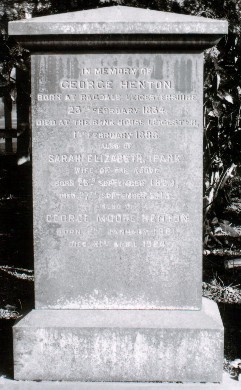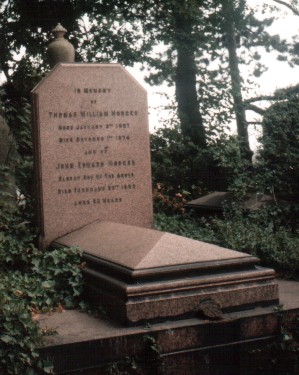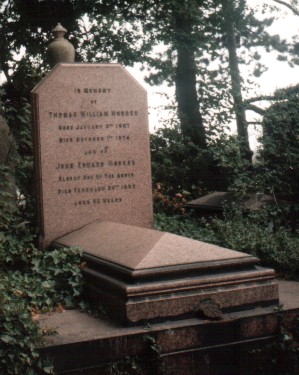The Cause Celebre of 1836 was the Libel Case. In May 1835 the Leicester Conservative
Standard had published a report of the Easter meeting of St Margaret's Vestry, which had
been called to elect new churchwardens. William Evans Hutchinson, a Quaker, had been at the
meeting to present his nomination of someone who would not levy the
unfair church rate. The Standard reported thus: 'Hutchinson, a Quaker, a busy, prating demagogue, whose
hypocritical visage may be seen on every occasion where anything disgraceful or unholy is
going forward...'
The man so described understandably took exception to this description of himself
and had written to
the editor, John Ouseley, asking for an apology and a retraction.
As this had not been forthcoming Hutchinson felt that he had had no option but to take the
matter to law. In March 1836 Edward Goulburn, one of the town's two Tory MPs, was retained by
the Conservative Standard to fight the indictment of the previous assizes
by the 'Demagogue Quaker Hutchinson'.
In court Hutchinson's solicitor stated that apart from the fact that the
meeting had been held there was not one word of truth in the article. For the defence Goulburn
tried to prove Hutchinson's bad reputation by referring to the handbill which he, Hutchinson,
had issued referring to the meeting.
In it he had used the 'incriminating' words: 'The meeting will be
held in the steeple house, or public building called a church.' It being common parlance
amongst Quakers to refer to churches as 'steeple houses'.
This, however, had no effect on either Judge John Bosanquet or the jury for they found
in favour of Hutchinson and found Ouseley guilty of the libel, and as such was fined ten pounds -
but not before the Judge had given the impression that he had been 'resting his eyes'
throughout the whole proceedings, for as the Leicester Chronicle
of 26 March reported:
Mr Ouseley, who had been sitting at the barristers' table stood up to receive
judgement: but Mr Wright the bailiff, happened at the time to be in the witness-box with
his face turned to the bench, his Lordship mistook him for the defendant and to him, therefore,
he delivered his discourse, to the no small amusement of those who noticed the misapprehension:
"John Thomas Ouseley" (said the learned judge) "you stand convicted of a libel. No cause,
however good, should be supported by abuse of those who differ from you.
Writers who have recourse to such weapons disgrace..."
When his Lordship had got thus far, Wright, unable to accept honours which he
had not
earned, turned his back upon the speaker, and modestly quitted his eminence. His lordship,
struck by the disrespect which he supposed the defendant to be paying to him, paused in his
address, and in an undertone, made use of some expressions significant of his astonishment.
The hitherto suppressed merriment of those who were cognizant of the ludicrous mistake, now
broke out in a titter: and the error into which the learned judge had fallen was pointed out to
him. His Lordship then proceeded, addressing himself to Mr Ouseley...'




